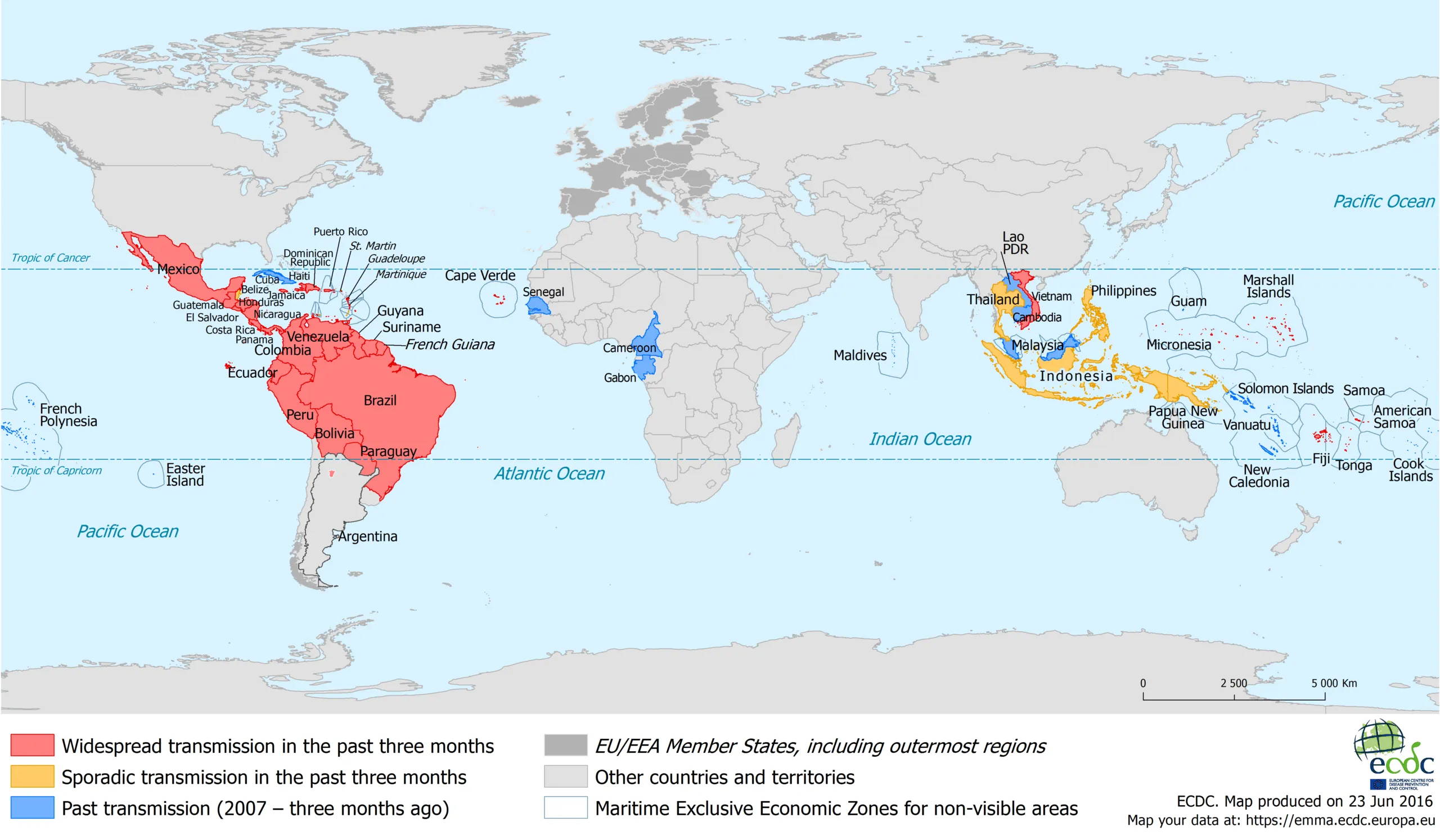Zika Virus: The Facts
July 7, 2016

The Zika Virus has had a lot of media attention recently with the build up to the Rio Olympics but what are the facts that we know about the Zika Virus?
How is Zika Virus Spread?
Zika virus is primarily transmitted11 via mosquitoes however there have been recent cases of it being sexually transmitted
If a man has an illness with symptoms similar to Zika Virus a condom should be used and continued for 6 months. If a man is arriving back from a Zika endemic country without any symptoms extra protection via the use of a condom is recommended for 8 weeks after leaving the Zika country Symptoms of the Zika virus include a mild fever, skin rash, conjunctivitis, muscle and joint pain or headache
Where in the world are the risks of Zika Virus?
The map below shows the areas in the world where there is a risk of the Zika virus:

What are the symptoms?
Zika virus is usually quite mild and requires no specific treatment. People sick with Zika virus require a lot of rest, drink lots of fluids and treat symptoms such as headache with common medicines. If symptoms worsen medical advice should be sought. If a fever is present for more than a few days medical attention should always be sought
Zika virus is much more dangerous for women who are pregnant or planning a pregnancy. This is due to the risk of a link between pregnancy and babies born with microcephaly (changes to the dimension of the head
The advice for pregnant ladies or ladies planning pregnancy is to try and avoid travelling to the Zika endemic areas. If this is not possible it is vital to use effective measures to reduce the chances of being bitten
How do you reduce the risk of Zika?
It is very important to wear insect repellents (DEET 50% or higher). Wearing clothes (preferably light-coloured) covering as much as the body as possible and using mosquito nets are other ways to reduce the risk of catching Zika virus.